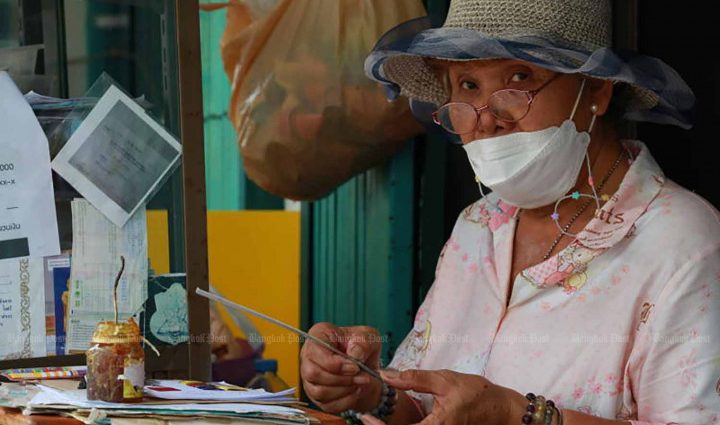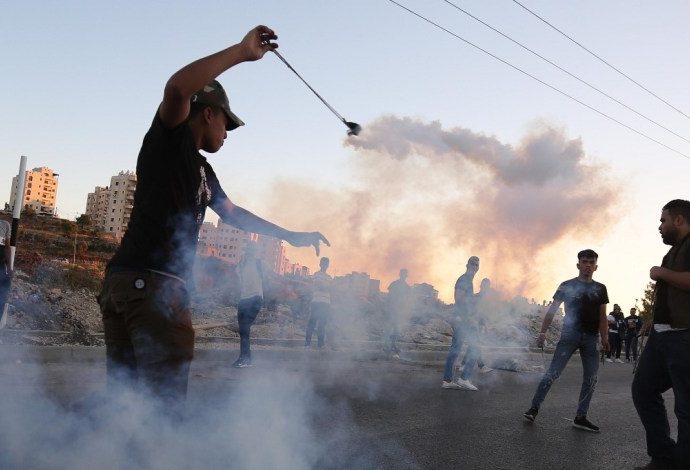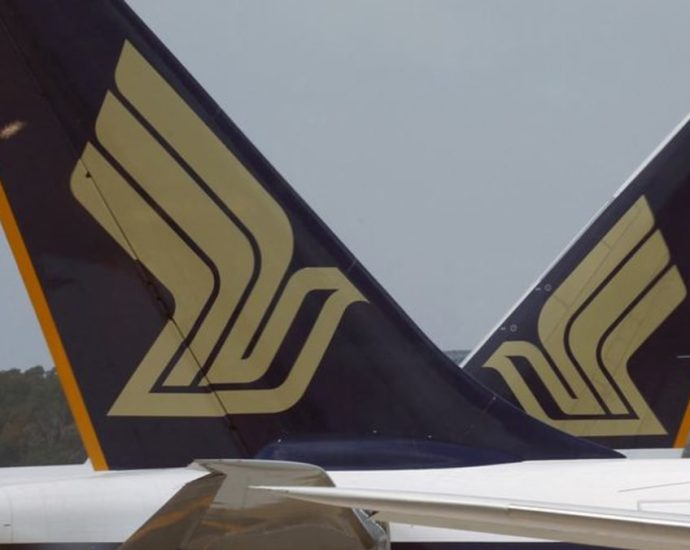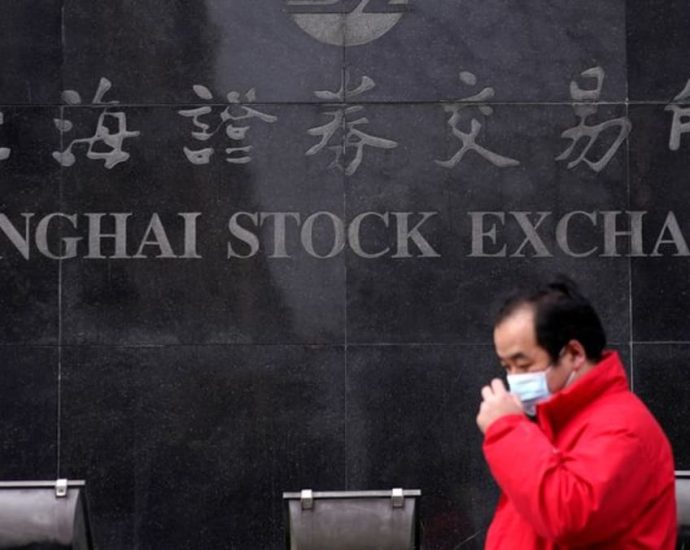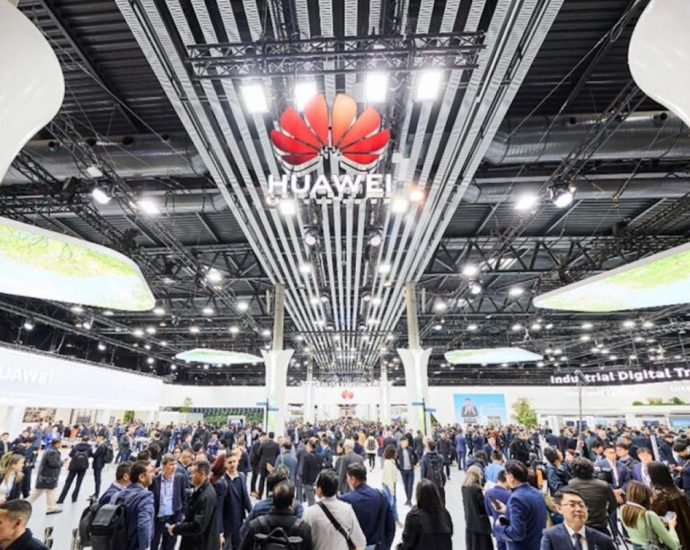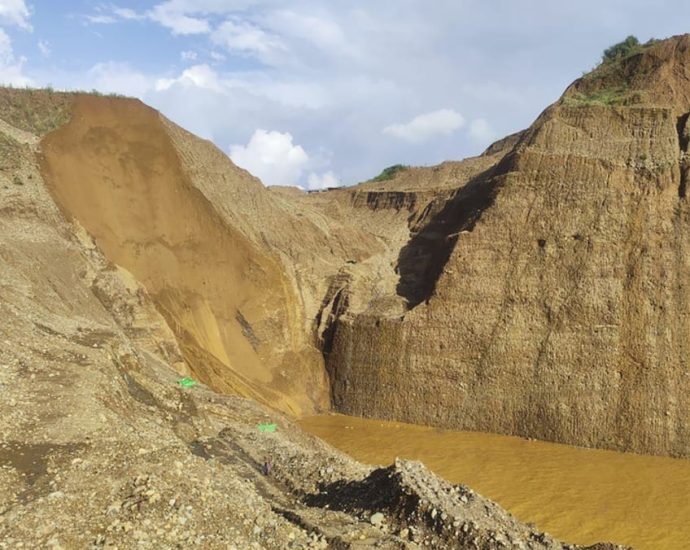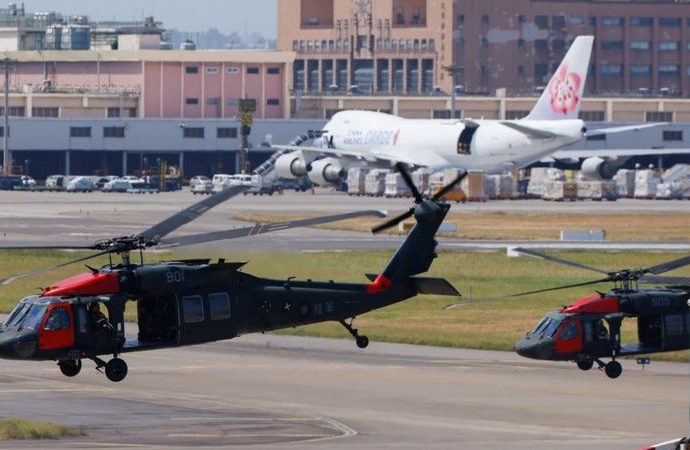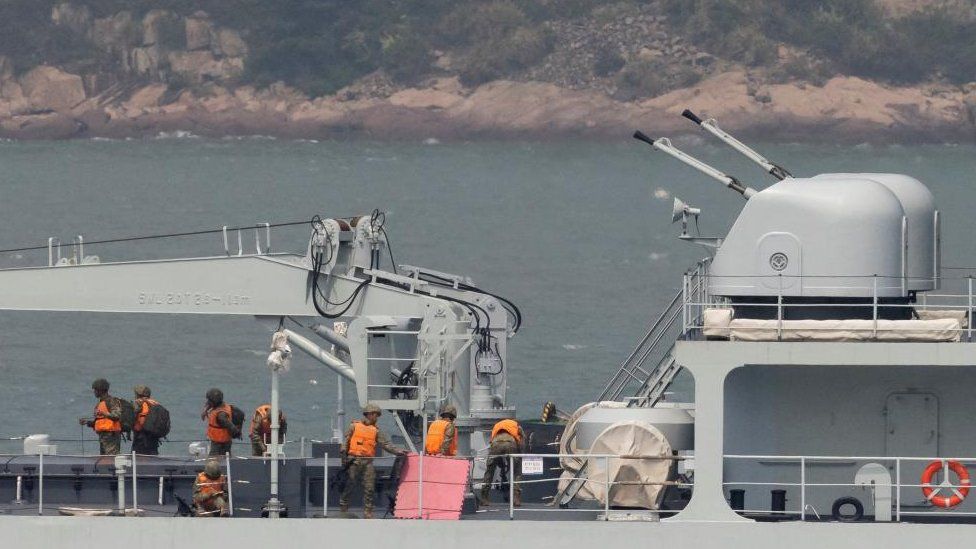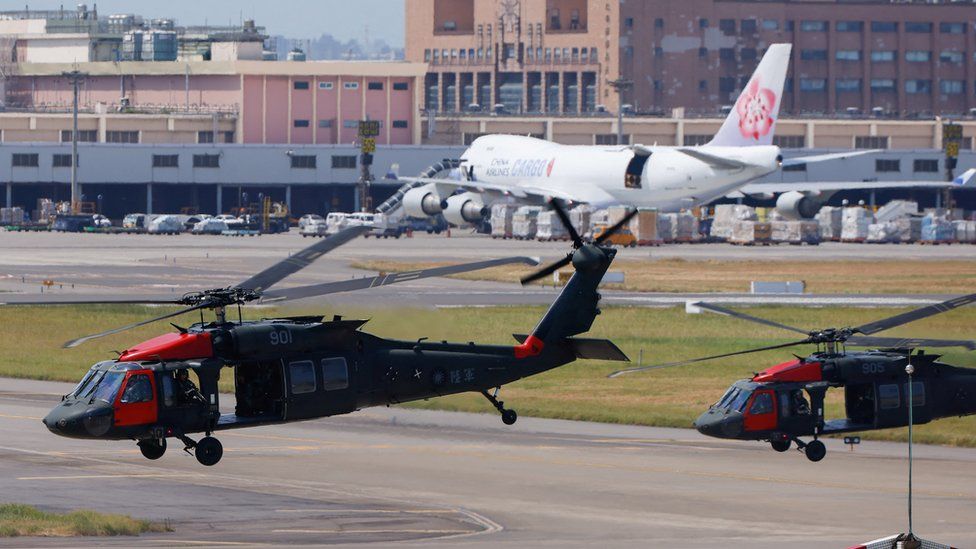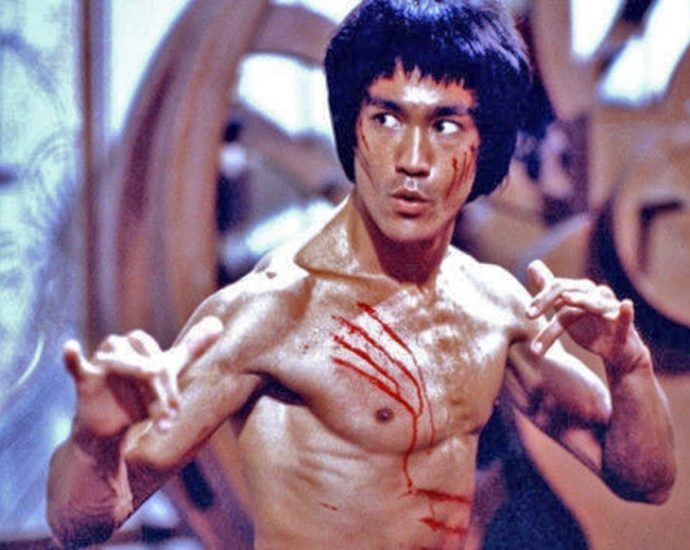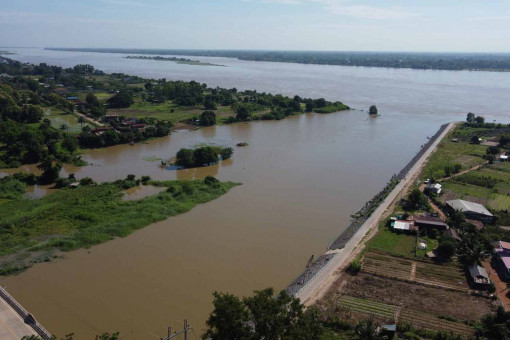Parties slam new restriction on old-age allowance

The Move Forward and Thai Sang Thai parties have slammed the caretaker government under Prime Minister Prayut Chan-o-cha for issuing a new regulation setting income limits for people receiving old-age pensions.
The new regulation was signed by caretaker Interior Minister Anupong Paojinda and published in the Royal Gazette and is effective from Aug 12.
The old regulation was for local administrations to pay universal monthly allowances of 600-1,000 baht to all elderly people – 600 baht for people aged 60-69, 700 baht for people aged 70-79, 800 baht for people aged 80-89, and 1,000 baht for people aged 90 years or more.
Item 6 (4) of the new regulation states that only people with no income, or insufficient income to cover the cost of living, are entitled to the monthly age allowance from the state.
However, Item 17, a provisional clause of the new regulation, states that the new criterion for payment of the age pension does not apply to people who registered for the allowance with their local administration before Aug 12, 2023. This means those currently receiving the allowance are not affected.
Wiroj Lakkhanaadisorn, a Move Forward list MP, said the new criterion had replaced universal coverage for the elderly.
It would have a severe impact on people reaching 60 years-old in the future. People turning 70, 80 or 90 and looking forward to the larger allowance would also be wondering if they would get it or not and, if so, when.
In addition, it was not clear if pople turning 60 who under the new criterion were not entitled to the allowance, but later find they cannot make ends meet, would be able to register for and receive the allowance, and how.
Mr Wiroj said Thailand now had about 11 million people aged 60 years or more. If payment of the age allowance was based on the database for state welfare cards, only 5 million of them would be entitled to the age allowance. The other 6 million would be left out in the cold by the government.
The MFP MP said Section 11 (11) of the Elderly People Act stipulates that payment of the old age allowance must be made on a monthly basis and must be universal and fair. The requirement for the elderly to prove their poverty may prevent them receiving state welfare, which was in breach of this law.
He said people affected by this change could petition the Administrative Court.
Khunying Sudarat Keyuraphan, leader of the Thai Sang Thai Party, said she strongly opposed the new Interior Ministry regulation.
The new criterion for receipt of the monthly allowance for the aged was a serious violation of the principle of universal coverage for state welfare, and it was discriminatory.
It ias not fair that elderly people should have to prove they do not have enough money to cover the cost of living in order to get the allowance, she said.
“The government … should instead lay a foundation for state welfare for all. The government should not use the state budget to create a debt of gratitude or to divide the people into the rich and the poor,” Khunying Sudarat said.
The Move Forward and Thai Sang Thai parties both propounded policies of paying a montly allowance of 3,000 baht to all elderly citizens during campaigning for the May 14 general election.
Lion shot dead after escaping from South Korean farm
SEOUL: A lion was shot dead in South Korea on Monday (Aug 14) after escaping from a privately owned farm and triggering a search by more than 100 police officers and the evacuation of dozens of campers from a nearby camping area. The lioness, named Sasoonee, was reported to beContinue Reading
US-Israel relations plumb lowest level in decades
For most of Israel’s 75-year history, its closest ally has been the United States, prepared to use its UN Security Council veto and invariably willing to encourage military collaboration as well as providing plenty of direct aid.
But that relationship is highly stressed at present, mainly down to the Netanyahu government’s determination to curb the power of the judiciary, especially the Supreme Court, in favor of more power for the Knesset.
As Time magazine put it recently: “The sources of Biden’s grievances are manifold. Since reclaiming power, Netanyahu has formed a hard-right coalition filled with ultraconservative and ultra-Orthodox voices. They have moved quickly to expand Israel’s settlement presence in the West Bank – gobbling up land that Palestinians see as their own and making the conditions near-impossible for an independent state to ever emerge there.”
The White House’s worries go beyond Israel’s current domestic instability, even with the weekly mass public protests against the judicial changes which the US president, Joe Biden, cautioned the Israeli government not to pursue.
They also concern the security of the occupied West Bank, where an increase in violence has been manifest over the past couple of years, mainly down to greater numbers of Jewish settlers with deep religious convictions.
They now number more than half a million across the West Bank, with many seeing it as their God-given land.
Meanwhile, the existing Palestinian population experiences more and more limitations, with security controlled by Israeli forces. Extremists among the settlers persistently harass and disrupt Palestinian life, including attacks on villagers. All too often, Israeli security forces just stand by, even in the face of direct violence.
The Biden administration rarely says much, but there has been a change in its overall attitude, shown by the recent celebration of Israel’s 75th anniversary. It was the relatively moderate if largely ceremonial president, Isaac Herzog, who was invited to Washington to address the US Congress in July, rather than the prime minister, Benjamin Netanyahu.

Far more pointed was the use of the term “terrorism” against Israel by the state department in response to the killing of a young Palestinian, 19-year-old Qusai Jamal Maatan, near Ramallah by settlers on August 4.
The Israeli agriculture minister, Avi Dichter, tried to dismiss this as a misinformed comment. But the state department confirmed the specific use of the term.
Behind all of this is a major problem for the Israelis in securing the West Bank for the Jewish settlers. With Netanyahu’s government dependent for its very survival on backing from ultra-Orthodox and ideologically nationalist politicians in the Knesset, the settlers have to be afforded all the protection they require.
But the Israeli Defence Force (IDF) is deeply reluctant to occupy even small areas of territory because of the determined opposition they would face from Palestinian Islamic Jihad (PIJ) and other paramilitary groups.
Over the past two decades, the IDF has learned the hard way to do everything it can to avoid frontline troops being in close contact with Palestinian populations for any length of time. In a rare event on July 3, the IDF forced entry into the Palestinian refugee camp in Jenin, a tightly packed district with 17,000 people crammed into a few streets and alleyways.
But this involved a brigade-sized force of well over 1,000 elite troops backed up by Shin Bet intelligence agents, Magav border police, armed drones, helicopter gunships, armored personnel carriers and armored bulldozers.
The entire operation of combing the camp for explosive device production workshops and other paramilitary sites linked to PIJ was compressed into just 48 hours of intensive activity. In the process, 13 Palestinians and one Israeli soldier were killed and scores of Palestinians were taken into custody.
This raid was most likely prompted by a well-organized PIJ ambush of an Israeli army patrol near Jenin in June, when five armored personnel carriers were damaged. A subsequent IDF rescue operation required a substantial ground force backed up by AH-64 Apache helicopters using air-to-ground missiles and took nine hours to complete.
Security and settlers
Why is there such a problem? Most analysts had come to the view that Israel had sufficient forces needed to ensure its own security – whether in southern Lebanon, Gaza or the West Bank.
The reason goes back over two decades with the IDF finding that, first in southern Lebanon and then especially in Gaza, ground troops facing highly motivated and well-trained paramilitary opponents fighting on their own home ground took unacceptably high casualties.
The largest IDF operation in Gaza of recent years was the seven-week Operation Protective Edge back in 2014 to suppress rocket fire into Israel and destroy underground facilities. The elite Golani Brigade led the way, but took heavy casualties with 13 killed and 50 injured on the first day alone.
IDF deaths over the seven weeks were 64, with 469 injured. These were tiny compared with over 2,000 Palestinians killed and about 10,000 injured, mostly civilians, but still unacceptably high for the Israelis.
Since then, Israel has opted more for remote war using missiles, bombs and artillery together with anti-rocket technologies, together with selective assassination raids by Special Forces.

The West Bank was relatively easy to control before the expansion in Jewish settlements, albeit appallingly difficult for Palestinians. Many settlers live close to Palestinian towns and villages and are afforded protection by the Israeli government which is controlled by ultra-right parties sympathetic to the settler movement.
Such has been the change in Israeli politics that even if parliamentary control slips away from the likes of Netanyahu, that will not end the problem. The settlers will remain, they are well armed and utterly convinced that they are right.
Netanyahu and the religious right have unleashed a new force and it may be that some in the Biden administration recognize the implications of this and do not like what they see.
Paul Rogers is Professor of Peace Studies, University of Bradford
This article is republished from The Conversation under a Creative Commons license. Read the original article.
Man conspired with fellow reservist to get S$207,000 in bribes for Singapore Airlines projects
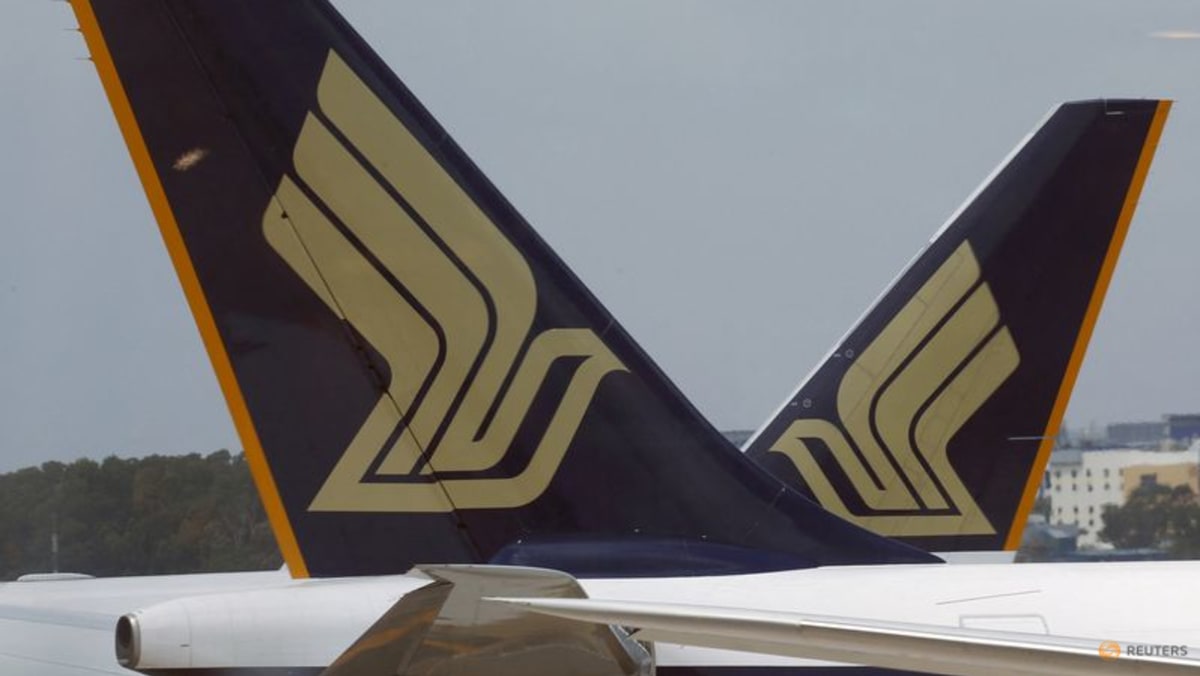
SINGAPORE: A man conspired with his friend from National Service, who worked for Singapore Airlines (SIA), to solicit bribes of more than S$207,000 (US$153,000) from a vendor for SIA projects.
Rex Zhang Jiahao, 38, pleaded guilty on Monday (Aug 14) to one count of conspiring to receive gratification under the Prevention of Corruption Act. Another two charges will be considered in sentencing.
The court heard that Zhang, a freelance interior designer, got to know co-accused Lionel Low Jun Jie, 36, through their reservist duties.
Low was an assistant manager of properties development at SIA, and managed ad-hoc renovation projects for the airline.
He would conduct quotation or tender exercises and shortlist contractors for interviews, before recommending the contractor to be awarded the project.
Low had been with SIA for six to seven years when he went for a reservist stint with Zhang in 2018.
Low was looking for building contractors for an SIA project, involving the construction of a two-storey building for classrooms to be used for training.
He asked Zhang for recommendations, suggesting that the designer could tell the contractor that he had an SIA contact – without revealing Low’s identity – who could help secure the tender.
On this basis, Zhang could then ask for a commission from the contractor, Low added.
Zhang agreed, and the pair said they would split the commission equally between the two of them.
He managed to find a contractor, 51-year-old Joseph Ang Kok Leng, manager of LIN ID and LIN Builders, who was interested but unsure if he could meet SIA’s requirements.
Zhang then told Ang that he could help him qualify for the project by speaking to his SIA contact.
THE CONSPIRACY
To help Ang in preparing documents for a bid, Zhang passed on confidential information about the project, that he had obtained from Low. This included SIA’s S$2.5 million budget for the classroom project, as well as expected timelines and milestones.
Before Ang submitted his quotation to SIA, he sent it to Zhang, who discussed with Low and told Ang what to change.
Ang offered to give Zhang 5 per cent of the contract amount of S$1.4 million as a “commission”.
The project was eventually awarded to Ang’s company for about S$2.2 million, including a construction fee of S$1.5 million and other costs.
Ang gave Zhang a “commission” of S$177,000 for this project. He later gave him another sum of about S$30,000 for his help in securing a contract supplying furniture for the classrooms.
The entire project was the largest that Ang’s company LIN ID had won and completed as of April 2021.
SIA paid LIN ID progressively, and Ang gave a total of S$207,535 in gratification to Zhang, across six occasions in 2019. Zhang split the money equally with Low, as agreed.
Zhang later said he knew it was wrong of him and Low to ask for a commission from Ang, in exchange for help to secure the contracts.
He said he did it because he needed money for his wedding and for renovating his new house. He spent the bribes on wedding, holiday and living expenses as well as his wife’s maternity bills.
Zhang will return to court for mitigation and sentencing in September.
The cases for Low and Ang are pending.
Shanghai Exchange urges bankers to closely vet Chinese medical firms IPOs: Sources
SHANGHAI: The Shanghai Stock Exchange has urged bankers to pay close attention to the marketing practices of Chinese drug and medical equipment makers seeking initial public offerings (IPOs) amid an escalating anti-corruption drive in the sector, sources said. The bourse asked investment bankers and lawyers to ensure drugmakers’ compliance andContinue Reading
Huaweiâs Q2 results defy US sanctions

Huawei’s business results improved in the second quarter while management continued to restructure and reorient the telecom giant’s business lines in the face of US sanctions. The sanctions, applied first by the Trump administration and intensified under Biden, have driven the transition, but Huawei’s senior management deserves credit for building an increasingly formidable telecom and […]Continue Reading
Landslide at Myanmar jade mine leaves more than 30 people missing, says rescue official
A miner who asked not to be identified because he feared for his safety said three of his colleagues who were digging for jade were carried down into the lake by the landslide. He said most of the victims were men. Similar accidents usually occur on a smaller scale andContinue Reading
Taiwan vice president is ‘troublemaker’, says Beijing
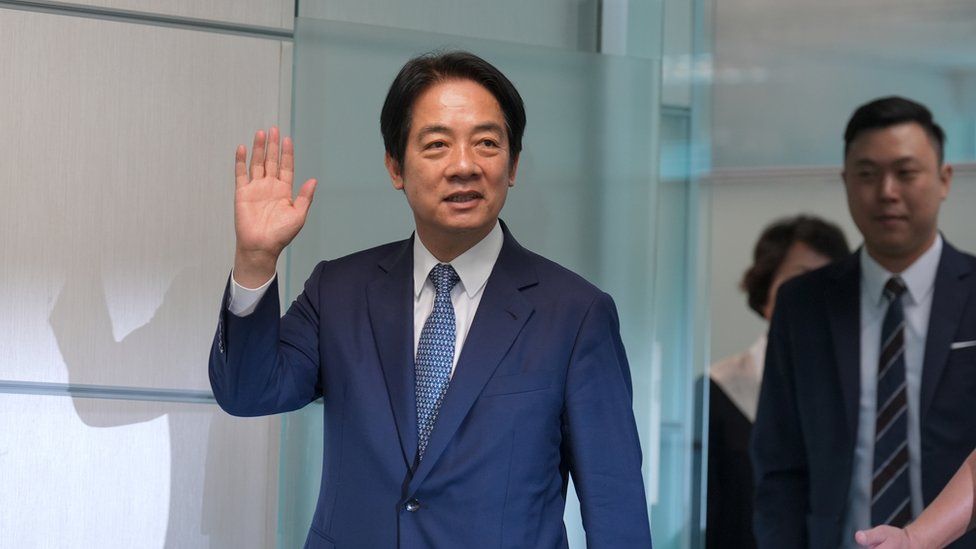 Getty Images
Getty ImagesChina has called Taiwan’s vice president William Lai a “troublemaker” for his ongoing visit to the US.
Beijing firmly opposes any official contact between Taiwan, which it regards as a renegade province, and the United States.
Mr Lai is considered the frontrunner in next year’s presidential elections, which will take place in January.
Taiwan says Beijing will likely conduct military drills near the island this week in a bid to intimidate voters.
Mr Lai, 63, is officially on a transit stop in the US, whilst on his way to Paraguay to attend the inauguration ceremony of its new president. The South American nation is one of only 13 countries to have formal ties with Taiwan.
The presidential candidate of the ruling Democratic Progressive Party (DPP) was in New York and San Francisco over the weekend, where he gave a speech pledging to protect Taiwan’s sovereignty in the face of “authoritarianism”.
Mr Lai added that only Taiwan’s people can decide their future, and that Taiwan and China are “not subordinate to each other”.
He also stressed that he was “very willing” to talk to China to seek peace and stability – common rhetoric in the runup to the election, as candidates look to gather support without angering Beijing.
Mr Lai has previously called himself – to Beijing’s displeasure – a “pragmatic worker for Taiwanese independence”
In response, China’s foreign ministry denounced Mr Lai’s remarks and accused Washington of engaging the self-ruled island in political activities under the guise of a stopover.
Though the United States severed formal diplomatic ties with Taiwan in 1979, its leaders are allowed to make transit visits to the US.
Taiwan regards itself as distinct from mainland China, with its own laws and democratically elected leader.
However, Beijing sees it as a breakaway province that will eventually be brought under its control, by force if necessary.
In April, Beijing l conducted military drills in response to a meeting between Taiwanese president Tsai Ing-wen and US House Speaker Kevin McCarthy in California.
Experts have warned that Mr Lai’s remarks may further escalate tensions. US-China relations are at an all-time low, with Taiwan one of multiple flashpoints between the two sides.
Related Topics
Weâll always have Beijing

In the half-century since Bruce Lee’s early death in July 1973, the image of Chinese in Western culture and business has come full circle, with an added twist of spite.
Prior to the martial arts deity’s explosion on to cinema screens in the 1960s, Chinese men were barely seen except as anonymous hordes reminiscent of the wave warfare that kept America at bay in Korea.
Their ultimate sacrifice was presented in the West as an ant-like lack of humanity rather than the collective courage we recognize from the Allied storming of Normandy beaches.
Chinese characters who emerged from this human soup were instantly vilified as Yellow Peril, attributed with every hateful human trait. This malicious template returns periodically as Fu Manchu, Dr No, Emperor Ming the Merciless and other evil Chinese who step out of line.
It was “balanced” by lovable creatures like Charlie Chan (played by Swedish actor Warner Oland in eye tape); The Pink Panther’s comical Kato (Burt Kwouk, an actual East Asian) as a sidekick even more useless than his boss Inspector Clouseau, the most useless man on the planet; and also another Kato, sidekick this time to The Green Hornet in the TV series, played by an underused Bruce Lee. So much for American original thought and innovation.
The cycle for Chinese cultural representation through the geopolitical eras goes something like this: Opium Wars – bad; gold mining in California – weak; building the Central Pacific Railroad Road for low wages – good; going on strike for better wages and conditions on the CPRR – bad!; 1870s economic downturn in the US – really bad; 1882 Exclusion Act – GTFOH!; Boxer Revolution to the Republic of China – Yellow Peril; Warlord Thirties – well, ding, dong, Anna May Wong!; World War II – welcome, bro; 1949 – Wut?; Cold War Korea – here comes that ant wave; 1960s – the Blessed Bruce be upon us.
The swinging sixties was a great decade in which to be alive if you were a member of the postwar (preferably white) working and middle class in America, Britain or parts of Western Europe. Not so great if you were living in China and trying to rebuild your wrecked country while staring down the barrel of foreign embargoes and a messy Cultural Revolution.
Bruce Lee was born and raised in San Francisco. He was beautiful and graceful with a body sculpted like Roman marble, but most impressively, instead of submissiveness to the master race, he exuded pride in his Chinese origins. And, true to the cultural aspirations of the time, he stuck up for the little people rather than sticking it to them.
His divinity was felt keenly in the UK when his Hong Kong-made Kung Fu films came out in the 1970s, Enter the Dragon being their stunning apogee. Even my dad raised his head out of his books for long enough to praise this popular hero.
For the first time, young males in the West wanted to be like Lee, an Asian male, instead of wanting to kick him. Tough working-class lads of every hue sought out martial arts kwoons and dojos and stuck his posters on their walls. He was an inspiration to men of color, and they loved him for it.
If he hadn’t died on the cusp of the Nixon-Kissinger agreement with Mao that would propel China, ever so slowly, into a Golden Age, he’d probably have had his own movie empire on a par with Jackie Chan: JC to Lee’s John the Baptist.
In the glory years since China proved itself to be the rising superpower, Mandarin has been taught in schools and Beijing represented supreme cool. Ten Cent movies made mega-bucks. Marvel gave us Shang-Chi, the first superhero movie to star an Asian lead, and two Asian main characters in the Agents of Shield TV series, played by Ming-Na Wen and Chloe Bennet.
Benedict Wong and Gemma Chan escaped limited prospects in the UK and built solid careers in the Marvel universe and beyond, while Sandra Oh made the sole reverse journey across the Atlantic and busted out with Killing Eve. Michelle Yeoh was Everything, Everywhere All at Once from Crouching Tiger, Hidden Dragon to Star Trek. Asians were being normalized.
However, the screech of brakes and smell of burning rubber as the West performs a doughnut spin threatening to send positive images of Chinese crashing through the windshield, means all change.
How do you persuade the public that it’s OK to have a war with people they’ve been encouraged to identify with if you keep humanizing them? Are buddy movies with Chinese as equal partners doomed to history before we’ve finished our popcorn? Is whitewashed Doctor Strange about to morph into Dr Strangelove or be eclipsed by Fu Manchu redux?
The tension between an industry making bank in the two leading economies and the demand by China hawks to slaughter the Golden Goose has to be resolved somehow.
A promiscuous use of backfiring tariffs and sanctions may provide the very catalyst that transforms the greenback signs in oligarchal eyes into yuan, as dumping the global reserve currency accelerates and everyone stampedes for the exit.
One advantage China will always have in this wholly unnecessary contest is the US’s example of a modern Ozymandias: Behold my works, ye mighty, and de-dollarize. Never has America needed its original Eastern hero as much as now to explain the art of the martial to politicians who keep pristine copies of Sun Tzu’s The Art of War on display but never crack the spine.
You’re supposed to use the weight of your opponent against him, grasshopper. And Be Like Water doesn’t mean running into the berg that sinks the USS Titanic just becuz we can.
In 2018, the International Monetary Fund’s Christine Lagarde side-eyed president Donald Trump’s imposition of tariffs on Chinese goods, loudly announcing that we were finally emerging from a Certain Someone’s Great Crash of 2008 with Another Certain Someone’s help.
Wall Street had a conniption. Gary Cohn, Trump’s chief economic adviser, fumed, “Peter Navarro ratfucked us into a trade war with China by taking advantage of Trump’s very small brain.”
We watched aghast as, in the words of the British PM whose backbone hadn’t yet crumbled, Trump “let all the air out of the tires of the global economy.” (Including, presumably, Boris Johnson’s own family’s investments. We sincerely hope he was personally reimbursed after ripping out our Huawei 5G infrastructure at the behest of the First Certain Someone with maybe a loan or sumthin’.)
And now President Joe Biden triples down on the madness.
Ironic that the Kung Fu concept of your own actions rebounding and hurting you when you point a loaded finger and find three fingers pointing back has taken place in real-time in front of our eyes. Every poisonous character assassination, every fusillade of hurt ends up damaging the perp as the target slips further out of reach.
My Blu-ray of The Great Wall, perhaps the last of the Hollywood/China blockbuster lash-ups, arrived in 2018, two years after its 2016 release. Tainted by all the ensuing unpleasantness, it sits forlornly on a shelf, still in its shrink wrapper.
I may never find out how Matt Damon saved Chinese civilization. But we’ll always have Beijing.
Mekong water level falling
Thousands of rai of rice fields damaged
PUBLISHED : 14 Aug 2023 at 11:56

NAKHON PHANOM: The level of the Mekong river is falling and water can now be drained more quickly out of thousands of rai of flooded rice fields, authorities in this northeastern border province said on Monday.
The river was receding by 10-20 centimetres per day. It was measured at 10.70 metres deep on Monday morning, 1.30m below the spilling point of 12m, Irrigation officials said.
Although the Mekong is falling, water in three major tributaries – the Nam Oon, Nam Songkhram and Huay Bang Ko rivers – was 20-30% higher than their normal capacities.
The provincial irrigation office was trying to drain as much water as possible out of nearly 10,000 rai of rice fields which have been flooded. It was initially estimated about 5,000 rai of the flooded rice crop would be damaged.

